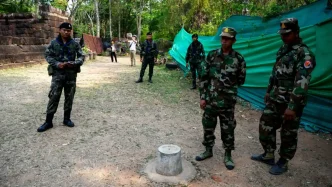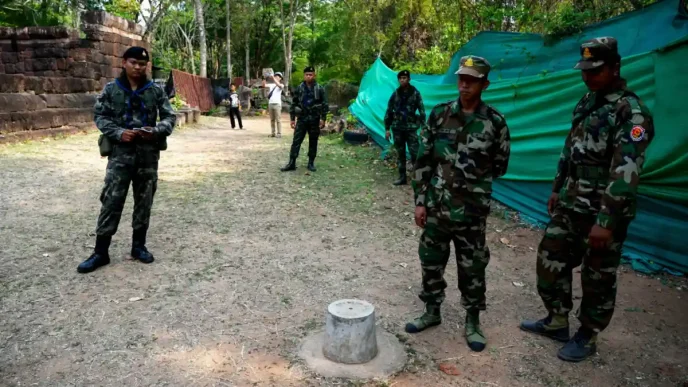Thailand’s government is pushing forward with a transformative amendment to the Rights Over Leasehold Asset Act, proposing to extend real estate lease terms from the current 30 years to an unprecedented 99 years. This ambitious policy, spearheaded by the Pheu Thai-led administration under Prime Minister Paetongtarn Shinawatra, aims to rejuvenate the nation’s economy by attracting foreign investment and high-net-worth individuals while navigating complex legal and cultural landscapes. With the bill expected to pass by 2025, the move signals a significant shift in Thailand’s approach to property rights and economic development.
A Strategic Economic Boost
The proposed extension of leasehold terms is framed as a catalyst for economic revitalization. By allowing foreign nationals and investors to secure long-term leases, the government hopes to stimulate large-scale investments in real estate, infrastructure, and high-end developments. The policy targets sectors such as housing, hotels, and commercial projects, aligning with broader national initiatives like the Land Bridge project and the creation of a financial hub. The Interior Ministry, now under Pheu Thai control following a recent cabinet reshuffle, is championing the bill, while the Finance Ministry oversees its economic implications.
The draft amendment, currently in public consultation, builds on discussions initiated during the tenure of former Prime Minister Srettha Thavisin. Under the current framework, leasehold periods are capped at 30 years, a duration many investors find insufficient for long-term projects. Extending this to 99 years is intended to provide the stability needed to attract significant capital, particularly from overseas. Government sources suggest that the legislative process is on an accelerated track, with expectations for the bill to clear Cabinet and reach the House of Representatives within months, potentially becoming law by mid-2025.
“Extending leaseholds to 99 years is a game-changer for the Thai property market” says Karel Engelbrecht, a Phuket-based real estate advisor. “It provides the long-term certainty that international investors have been waiting for, while still protecting national interests. I believe this move will unlock massive potential across both residential and commercial sectors.”
Manaporn Charoensri, Deputy Minister of Transport and advisor to the government whip, emphasized the urgency of the reform, noting the government’s goal to enact the law by next year. Meanwhile, Chusak Sirinil, a Minister Attached to the Prime Minister’s Office, confirmed that while the bill awaits formal Cabinet discussion, it remains a priority for expedited legislation. This momentum reflects a broader strategy to position Thailand as a competitive destination for global investment amidst regional economic challenges.
Not a Sell-Off, but a Safeguard
One of the most contentious aspects of the proposed reform is the perception that it could lead to a sell-off of national assets. Addressing these concerns, former Prime Minister Srettha Thavisin firmly rejected such claims in a statement to local media. He clarified that the amendment does not permit direct ownership of land by foreigners. Instead, assets entering the 99-year leasehold program must first be transferred to the Treasury Department. Upon the lease’s expiration, these assets revert to the state, ensuring they remain part of Thailand’s sovereign wealth.
“The notion of selling off the nation is unequivocally false” Srettha asserted, highlighting that without transfer to the Treasury, assets remain under the existing 30-year lease framework. He argued that the policy is designed to boost investor confidence while protecting national interests, noting that similar long-term lease structures exist globally, with some countries like the UK offering terms up to 999 years. This mechanism, he added, extends beyond residential properties to include commercial buildings and other assets, benefiting both large-scale investors and smaller enterprises.
The legislation also includes provisions to curb illegal practices, such as the use of nominees to bypass foreign ownership restrictions. By enhancing transparency and standardizing asset ownership rules across various frameworks—including the Eastern Economic Corridor Act and the Investment Promotion Act—the government aims to reduce inconsistencies and combat illicit activities. This focus on governance is seen as a critical step toward aligning Thailand’s property market with international standards.
Unlocking Investment and Innovation
Beyond real estate, the 99-year lease extension is poised to support a range of government initiatives. Former Prime Minister Thaksin Shinawatra, in a recent lecture on Thailand’s economic future, underscored the need to unlock legal barriers to foster investment. He championed the leasehold reform as a means to encourage private sector participation, especially in light of public sector budget constraints. Projects such as land reclamation for flood prevention and the development of solar farms on agricultural reform land stand to benefit significantly.
For instance, government estimates suggest that utilizing 140,000 rai (approximately 55,352 acres) of state land for solar energy could generate up to 40,000 megawatts of electricity with 24-hour storage capacity. If implemented in the Northeast with transmission lines to economic centers like Bangkok, this could lower electricity costs to as little as 3 Thai Baht per unit (roughly US$0.09), making Thailand an attractive hub for energy-intensive industries like data centers. Such initiatives highlight the broader economic ecosystem the government seeks to cultivate through this reform.
Additionally, the policy aligns with efforts to attract highly skilled professionals and global talent to Thailand. By offering long-term leasehold rights, the government hopes to integrate these individuals into the workforce, addressing demographic challenges such as a projected population decline to 37 million within 50 years. Srettha noted that providing residency assurances through extended leases could be a decisive factor for high-caliber labor and investors, positioning Thailand as a regional talent hub.
Balancing Benefits with Exceptions
While the reform targets a wide array of assets, certain categories, such as agricultural land, are explicitly excluded from the program. This exemption reflects a cautious approach to preserving sensitive sectors tied to national identity and food security. Other stipulations may apply to specific types of land or assets, ensuring that the policy does not overreach into areas of cultural or strategic importance. The government has also emphasized that the law is not solely for foreign investors; Thai citizens can equally leverage the extended lease terms for domestic projects.
The legislative process includes a two-week public consultation period, allowing stakeholders to voice concerns or suggestions before the bill advances to Cabinet approval. Previous delays in similar reforms were attributed to political hurdles rather than substantive opposition, suggesting that under the current administration, the path to enactment may be smoother. Once passed, the law is expected to underpin key policies like the housing for Thais initiative, which aims to reduce urban living costs by capping public transport fares and enabling affordable central-city residences for lower-income earners.
While Engelbrecht is optimistic, he cautions that investors should still do their homework “Extended leases are a great step forward, but buyers still need to understand the legal framework, due diligence, and proper structuring,” he says. “Working with experienced local advisors remains critical.”
Economic Implications and Regional Context
Thailand’s leasehold reform must be viewed within the broader context of Southeast Asia’s competitive economic landscape. Neighboring countries like Singapore and Malaysia have long offered attractive property and investment frameworks, drawing significant foreign capital. By extending lease terms to 99 years, Thailand seeks to level the playing field, positioning itself as a viable alternative for investors wary of shorter-term commitments. The policy could also set a precedent for other nations in the region grappling with similar economic stagnation and demographic shifts.
However, the reform is not without risks. Critics may argue that long-term leases, while stopping short of ownership, still cede significant control over national assets for nearly a century. Public sentiment, particularly in a country with a history of sensitivity to foreign influence, could pose challenges to the bill’s smooth passage. The government will need to balance economic imperatives with cultural and political considerations, ensuring that the narrative of national benefit overshadows fears of external dominance.
Moreover, the success of the policy hinges on effective implementation and oversight. The mechanisms to prevent nominee abuses and ensure asset reversion after 99 years must be robust and transparent to maintain public trust. Failure to address these concerns could undermine the economic gains the government anticipates, potentially fueling opposition or legal challenges down the line.
A Forward-Looking Gamble
As Thailand navigates the complexities of the 99-year leasehold reform, the stakes are undeniably high. If successful, the policy could mark a turning point in the nation’s economic trajectory, unlocking billions in investment and cementing its status as a regional powerhouse. Yet, the path forward requires careful calibration to address public concerns, safeguard national interests, and deliver on the promised benefits.
As the bill progresses through consultation and legislative stages, its impact on Thailand’s economy and global standing remains an open question. Will this bold gambit attract the investment and talent needed to secure a prosperous future, or will it stir unforeseen challenges? Only time—and the meticulous execution of this reform—will tell.
















